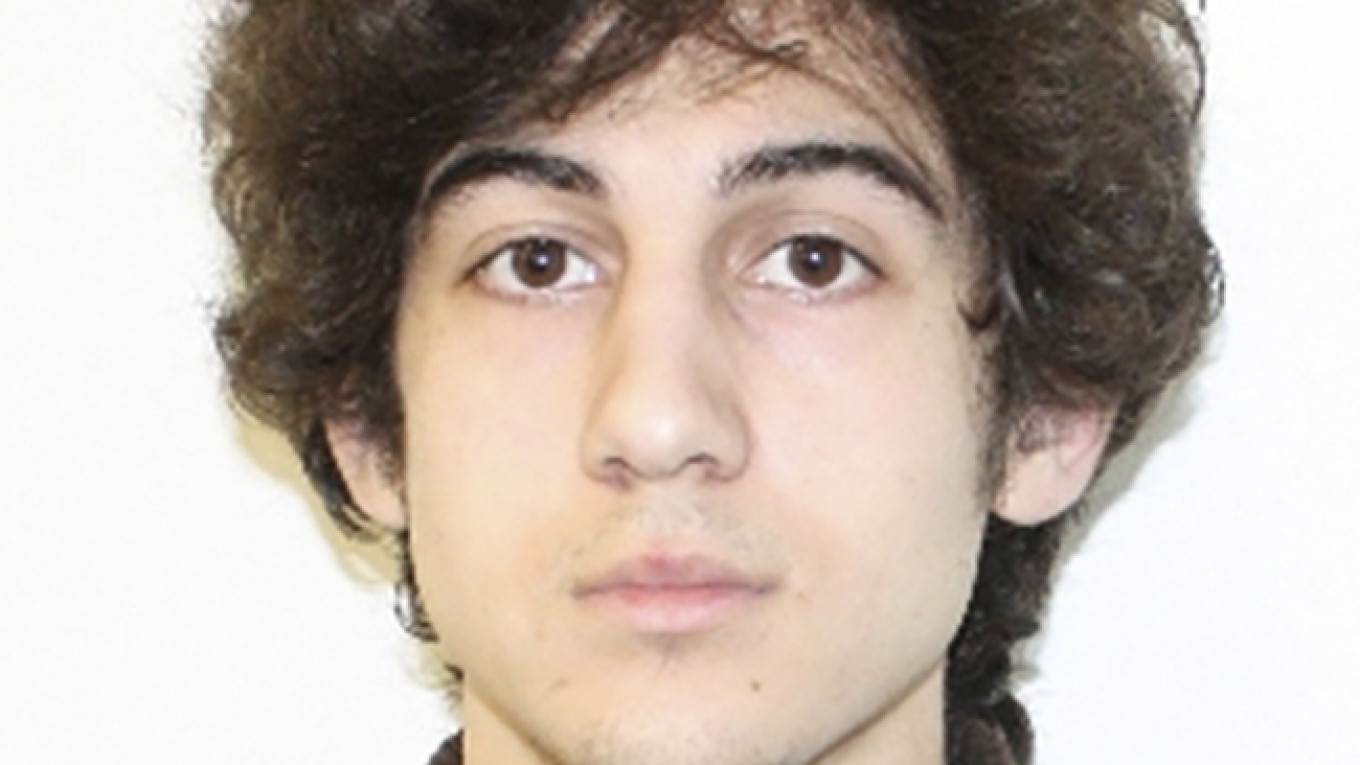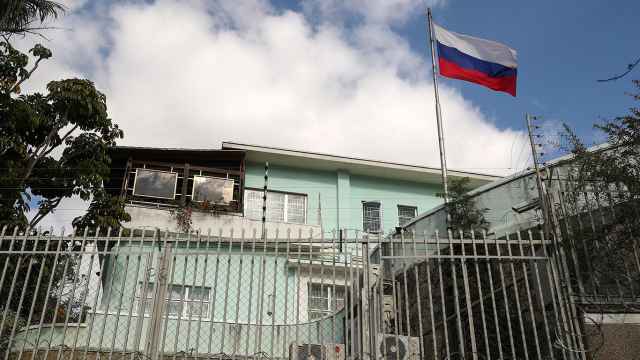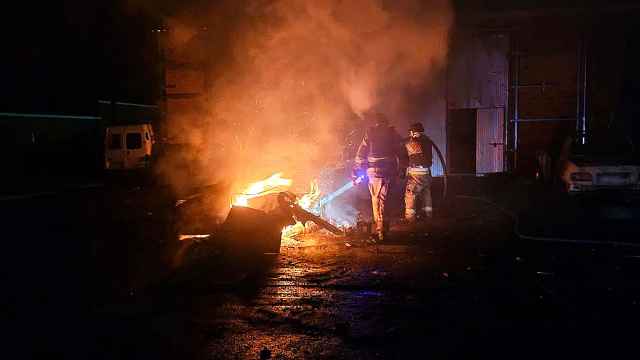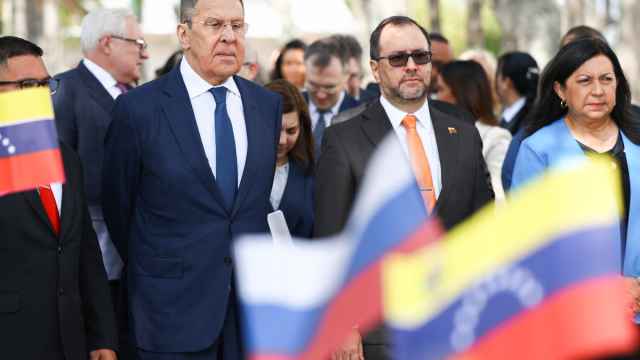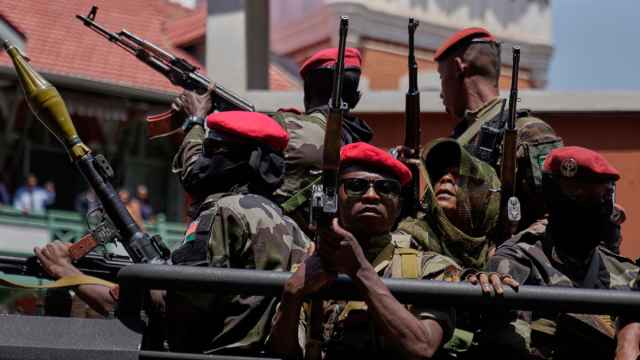BOSTON — The Boston Marathon bombing was the "essence of terror," a U.S. prosecutor said Tuesday as the government began making its case that convicted bomber Dzhokhar Tsarnaev should be sentenced to death for the 2013 attack and its aftermath.
Tsarnaev, a 21-year-old ethnic Chechen, was found guilty on April 8 of killing three people and injuring 264 at the marathon finish line and fatally shooting a police officer as he and his older brother, Tamerlan, prepared to flee three days later.
"Dzhokhar Tsarnaev murdered each one of them in a way that they had time to feel pain," said Nadine Pellegrini, an Assistant U.S. Attorney, in the prosecution's opening statement of the sentencing phase. "They had time to feel scared and frightened. But they had no time to say goodbye. That is the very essence of terror."
Pellegrini told the jury that prosecutors would spend some of the next week providing testimony about what Tsarnaev's victims were like and the suffering endured by the 17 people who lost limbs to the twin homemade pressure-cooker bombs.
Prosecutors, citing al-Qaida materials found on Tsarnaev's laptop and a note in which he suggested the April 15, 2013 bombing was retribution for U.S. military campaigns in Muslim-dominated countries, have sought to paint him as a violent extremist.
But defense attorneys have countered that 26-year-old Tamerlan, who died following a gunfight with police hours after the officer's slaying, was the driving force, with Dzhokhar acting in a secondary role out of a sense of sibling loyalty.
Tsarnaev's lawyers opted to delay their opening statement until next week, when they are due to begin calling their own witnesses.
The government's first witness, Celeste Corcoran of Lowell, Massachusetts, described being hurled through the air by one of the bombs and being rushed to a hospital where doctors amputated both her legs.
Corcoran, who had gone to the race to cheer for her sister, recounted the emotional swings that accompanied her pain.
"I remember thinking that the pain was too much and that I wanted to die," Corcoran said in sometimes tearful testimony. "Immediately I was like, 'Hell no. I don't want to die … I have to be there for my kids'."
Corcoran's adult daughter, Sydney, was also badly injured but survived and the two shared a hospital room for weeks.
In an apparent effort to anticipate a likely defense argument, Pellegrini argued that Tsarnaev's actions could not be blamed on his brother or his troubled family.
"You may hear about family dynamics, family history, family dysfunction," Pellegrini said. "But many people, millions of people, I would venture, face troubles throughout their lives. Who among them murders people with a bomb?"
The Tsarnaevs moved to the United States from Russia a decade before the attack.
Pellegrini urged the jury not to give too much consideration to evidence from the guilt phase of the trial that suggested Tamerlan had downloaded radical materials before Dzhokhar.
"The origin of the lineage of terrorism doesn't matter," Pellegrini said. "What matters are his beliefs in terror, his actions."
U.S. District Judge George O'Toole had blocked the defense from introducing much evidence about Tamerlan in the trial's first phase, but legal experts said Tsarnaev's attorneys will likely have much freer rein in the sentencing phase.
That phase is expected to last about four weeks, after which the same jury that convicted Tsarnaev will decide between the death sentence or life in prison.
Pellegrini ended by showing the jury a surveillance photo she said was taken of Tsarnaev in a holding cell on the day of his first court appearance in July 2013.
In the photo, Tsarnaev grimaces and makes an obscene gesture at the camera with his middle finger.
"This is Dzhokhar Tsarnaev," Pellegrini said. "Unconcerned, unrepentant and unchanged."
A Message from The Moscow Times:
Dear readers,
We are facing unprecedented challenges. Russia's Prosecutor General's Office has designated The Moscow Times as an "undesirable" organization, criminalizing our work and putting our staff at risk of prosecution. This follows our earlier unjust labeling as a "foreign agent."
These actions are direct attempts to silence independent journalism in Russia. The authorities claim our work "discredits the decisions of the Russian leadership." We see things differently: we strive to provide accurate, unbiased reporting on Russia.
We, the journalists of The Moscow Times, refuse to be silenced. But to continue our work, we need your help.
Your support, no matter how small, makes a world of difference. If you can, please support us monthly starting from just $2. It's quick to set up, and every contribution makes a significant impact.
By supporting The Moscow Times, you're defending open, independent journalism in the face of repression. Thank you for standing with us.
Remind me later.


